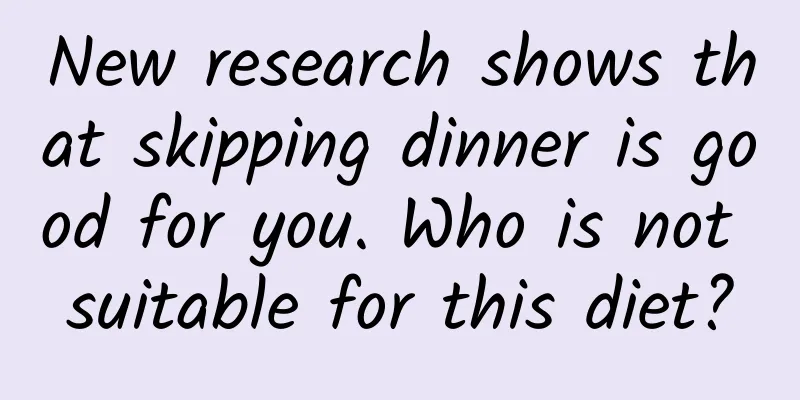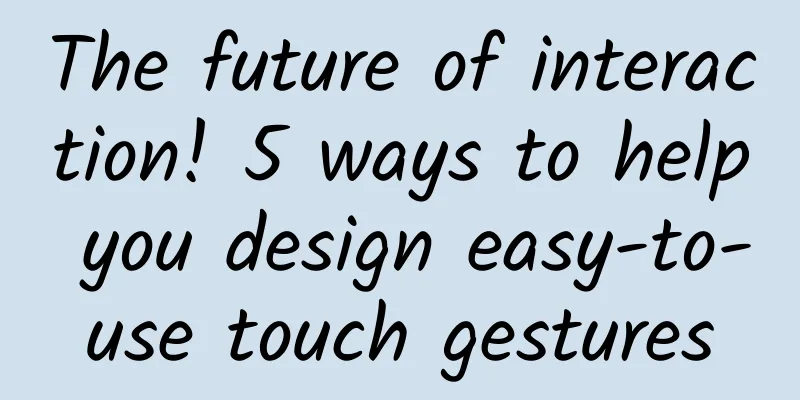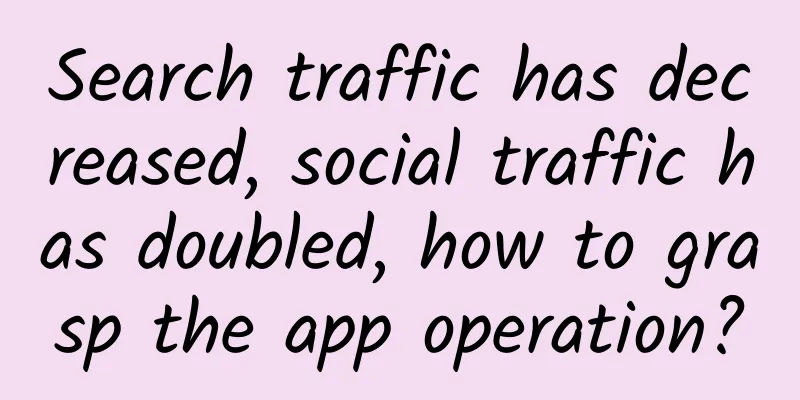New research shows that skipping dinner is good for you. Who is not suitable for this diet?

|
Recently, it has been widely circulated in the circle of friends that Chinese scientists have discovered that not eating after noon really has benefits! Don’t eat dinner! Some people also said: I can’t do it, what should I do? This article will tell you whether skipping dinner is healthy and who should not skip it. It will also tell you what other ways you can use to make up for the regret if you can’t skip dinner. Strictly speaking, what is discussed in the relevant scientific news is a "time-restricted eating" lifestyle in which the focus of diet is placed on the first half of the day. Image source: Tuchong Creative The so-called time restricted feeding (TRF) means limiting the time of eating to a certain range during the day, not eating whenever you want. There are 24 hours in a day, and most people don't eat for 10 to 12 hours, such as from 8 pm to 6 am, which is 10 hours; from 7 pm to 7 am, which is 12 hours. This period of time is called "fasting" or "empty stomach". For example, if you need to have your blood drawn for a physical examination, you will usually be asked not to eat after 8 pm the night before. This is called overnight fasting. The data measured at this time is called fasting value, such as fasting blood sugar, fasting blood lipids, etc. If you can limit the eating time window to within 12 hours, it is considered "time-restricted eating". If the restriction is more stringent, such as only 6 to 8 hours, or even only 4 hours, it is also called "day fasting". In other words, by extending the time without eating as much as possible and keeping the body in a fasting state for a long time, it plays a similar role to the "5 plus 2 light fasting" method. They all belong to the "intermittent fasting" method. Many studies have found that compared with eating whenever you want, "day fasting" and controlling the eating time window more strictly may be more beneficial for weight loss and blood lipid reduction. Image source: Tuchong Creative On the one hand, after shortening the eating time window, it is difficult for people to overeat. Everyone has this experience: if you haven't eaten at mealtime, you feel hungry, and usually eat faster and more for the next meal. The stomach empties in 4 to 6 hours. If you eat three meals within 6 to 8 hours, the stomach will not be empty before the next meal comes. Most people will not have such a strong appetite. What if you only eat two meals? The total amount is unlikely to be more than the normal three meals. On the other hand, if you fast for a long time, you will basically not eat all kinds of snacks. If you have to eat three meals within 8 hours, how can you have the appetite to eat snacks within 8 hours? Even if you want to eat snacks at other times, you are not allowed to eat anything. Don't you have to give up the idea of eating snacks? Moreover, if you are hungry and cannot eat during the fasting period, you will need to consume body fat and protein, so you will become thinner. For people who are originally overweight, losing weight will easily reduce blood lipids, blood pressure, and blood sugar. However, in addition to sleeping for 8 hours, there are still 16 hours. If there are only 8 hours to eat, from what time to what time? This involves the issue of the time window for eating. Researchers have previously explored this issue. They divided time-restricted feeding into two types: early-stage feeding (eTRF) and mid-stage feeding (mTRF). "Early eating" usually occurs in the morning and early afternoon, such as 6:00 to 14:00, 7:00 to 15:00, and 8:00 to 16:00. "Mid- and late-night eating" starts from noon until the evening, such as 11:00 to 19:00, 12:00 to 20:00, and 13:00 to 21:00. Many people think that eating three meals every 6-8 hours is too troublesome. Normally, people only eat two meals. Therefore, if you eat in the early morning, you need to skip dinner, and if you eat in the middle and late evening, you need to skip breakfast. Compared with these two methods, which one is more conducive to metabolic health? The current preliminary research conclusion is that eating early is more conducive to weight loss and disease prevention. (Friends who are not interested in the research can just read the bold font and then scroll to the end of the article to see a few suggestions.) A study found that three days of restricted eating in the early morning (8 am to 2 pm) can reduce appetite and promote fat oxidation, thus helping to prevent and reduce obesity [1]. The researchers found that the time spent eating was shortened, but the average ghrelin level was reduced and the average satiety level increased. The non-protein respiratory quotient was found to be reduced, which means that more fat was oxidized. Another study found that compared with the eating time between 8 am and 8 pm, the eating time between 8 am and 2 pm can better improve blood sugar fluctuations in obese people, increase cell autophagy, increase ketone body levels in the early morning when fasting, increase brain-derived neurotrophic factor levels at night, etc., and adjust the expression of genes related to circadian rhythm [2]. These changes may help fight aging. Many studies have previously found that adjusting the focus of daily diet to daytime and eating less or not eating at night may be beneficial in preventing obesity, diabetes, and cardiovascular and cerebrovascular diseases. This may be determined by the laws of circadian rhythm. The novelty of this study by Chinese researchers is that they changed the type of subjects. Previous studies were conducted on overweight or obese people, but this study was conducted on healthy people who were not obese [3]. On the other hand, this study measured more indicators. In addition to changes in body composition, changes in metabolic indicators, changes in inflammatory indicators, changes in intestinal flora, there were also tests on metabolic pathways and related genes. In short, all possible indicators were included. In this experiment, the eating window for "early eating" is between 6 am and 3 pm, and the eating window for "mid-late eating" is between 11 am and 8 pm. You can decide the specific time, but you can only eat for 8 hours a day. The experiment lasts for 5 weeks. You probably understand by now that this is not the classic no-eating policy, but it just moves the meal time forward to before 3 p.m. Dinner is definitely skipped, but snacks and other extra meals are not restricted before 3 p.m. The results are similar to those before: compared with unlimited eating time, the early eating pattern is more conducive to fat loss, improving insulin sensitivity, and reducing inflammatory response. Compared with "eating whenever you want", eating in the middle and late hours also has a certain effect, but the effect is obviously not as good as eating in the early hours. If the 8-hour or 6-hour eating time is a bit short, then it is easy to control it within 12 hours. For example, most people can eat breakfast at 7:30 in the morning and not eat after 7:30 in the evening. Image source: Tuchong Creative A study found that when a calorie-reducing diet plan was designed for obese women, the body fat percentage and waist circumference were reduced more if they were allowed to eat within a 12-hour window than if they were allowed to eat at any time. In other words, the diet was the same, the physical activity was the same, but if a 12-hour eating window restriction was added, the effect was significantly better [4]. To sum up, if you need to reduce fat, lose weight, and stabilize blood sugar, and the burden of work, study, and exercise at night is relatively light, then you can eat like this: 1. Concentrate your eating time within 8 to 10 hours. Don’t eat whenever you want. 2 Try to focus your eating before noon, eat a full breakfast, improve the quality of lunch, and eat less or no dinner. 3 If you have dinner, it is best to finish it before 6 o'clock and before 7 o'clock at the latest. 4 Don't eat anything after dinner. Although the time of eating has changed, the following three requirements must be met at the same time: 1 The food content is very healthy. Just because there is a time limit for eating, you cannot eat unhealthy snacks, drinks, fried foods, etc. 2 The variety is still very rich, and all kinds of food are taken into account, instead of just eating a few kinds of things due to time constraints. 3 The amount of food should not be too small, and the supply of protein and various micronutrients should meet the standards. A simpler way is to just eat dinner earlier. Many people worry that eating carbohydrates at dinner will cause high blood sugar levels at night, which is not conducive to controlling blood sugar and blood lipids, nor is it conducive to preventing obesity. However, studies have shown that it is not necessary to give up carbohydrates at dinner. As long as you eat dinner earlier, you can effectively reduce blood sugar fluctuations at night, and even improve blood sugar fluctuations throughout the day, and promote fat metabolism [5]. Compared with eating dinner at 8 o'clock or even later, eating dinner at 6 o'clock can achieve healthier results. Our latest research also found that if you can eat dinner before 6 o'clock and only eat white rice, the blood sugar fluctuation value after dinner will be even lower than that after breakfast and lunch. (To be published) Therefore, if you can really eat three meals a day, eat dinner early, and avoid snacks and sweet drinks between meals, it is enough to achieve the goal of preventing obesity. For those who have to work overtime or study at night and do not meet the obesity standard, there is no need to work hard to eat for 6 or 8 hours. In addition, people who need to gain weight, patients with gastrointestinal diseases, liver and kidney diseases, malnourished people, pregnant women, nursing mothers and growing children should use the 8-hour or even shorter time-restricted eating mode with caution. Being able to eat within 10 to 12 hours and not eating snacks randomly is healthy enough. Finally, I would like to give you a piece of advice: If you really want to give up dinner, you must follow the lifestyle of going to bed early and getting up early. Don't do strenuous exercise at night, and don't use your brain intensively. Otherwise, if you are hungry at night, you will toss and turn and have trouble sleeping if you don't eat, and if you eat, your day will be ruined and your gastrointestinal function will be affected, which will not be worth the loss. References: [1] Ravussin E, et al. Early Time-Restricted Feeding Reduces Appetite and Increases Fat Oxidation But Does Not Affect Energy Expenditure in Humans. Obesity, 2019, 27:1244-1254 [2] Jamshed H, et al. Early Time-Restricted Feeding Improves 24-Hour Glucose Levels and Affects Markers of the Circadian Clock, Aging, and Autophagy in Humans. Nutrients, 2019, 11, 1234 [3] Xie Z, et al. Randomized controlled trial for time-restricted eating in healthy volunteers without obesity. Nature Communications, 2022, 13:1003 [4] Pureza IROM, et al. Acute effects of time-restricted feeding in low-income women with obesity placed on hypoenergetic diets: Randomized trial. Nutrition, 2020, 77: 110796 [5] Eating Dinner Early Improves 24-h Blood Glucose Levels and Boosts Lipid Metabolism after Breakfast the Next Day: A Randomized Cross-Over Trial. Nutrients, 2020, 13:2424 Reprint/ Cooperation please contact Source: Fan Zhihong_Original Nutrition Information |
>>: Using "cocoa butter substitute" to impersonate chocolate? Be careful when buying chocolate!
Recommend
Digital marketing and private domain traffic operation, refined customer operation reconstructs the marketing closed loop
In the current era of the new mobile commerce mar...
Android M Developer Preview 2 released
[[139789]] Google updated the Android M developer...
Did the user quit the app as soon as he opened it? Use these 4 methods to keep him here!
How can we prevent users from interrupting operat...
How to purchase the birthday blessing video for African children?
A simple small blackboard with words written on i...
What are the benefits and functions of SEM marketing?
There are many large and small online marketing t...
How can a novice quickly build an information flow promotion account? Done in 3 steps!
Many information flow optimizers are not familiar...
A detailed performance test of Microsoft's new Edge: Why is it so cool?
Windows 10 is about to be completed, and the buil...
BOSS Zhipin Competitive Product Analysis
The online recruitment industry now has a large m...
Mushrooms contain heavy metals and should not be eaten? The truth is not that scary
"Mushrooms contain heavy metals and cannot b...
The latest news on the Nanjing epidemic: Can outsiders enter Wuxi now?
Wu Guo: I am from Xuzhou, Jiangsu. My child’s sch...
Moments Advertising①: Analysis of Lianjia’s advertising!
On August 15, Lianjia placed an advertisement on ...
Confessions of a mediocre programmer
[[136897]] Jacob Kaplan-Moss is the co-creator an...
Chinese research team makes Kenyan corn grow from 1 meter to 2 meters! | Expo Daily
Chinese research team, Let Kenyan corn grow from ...









